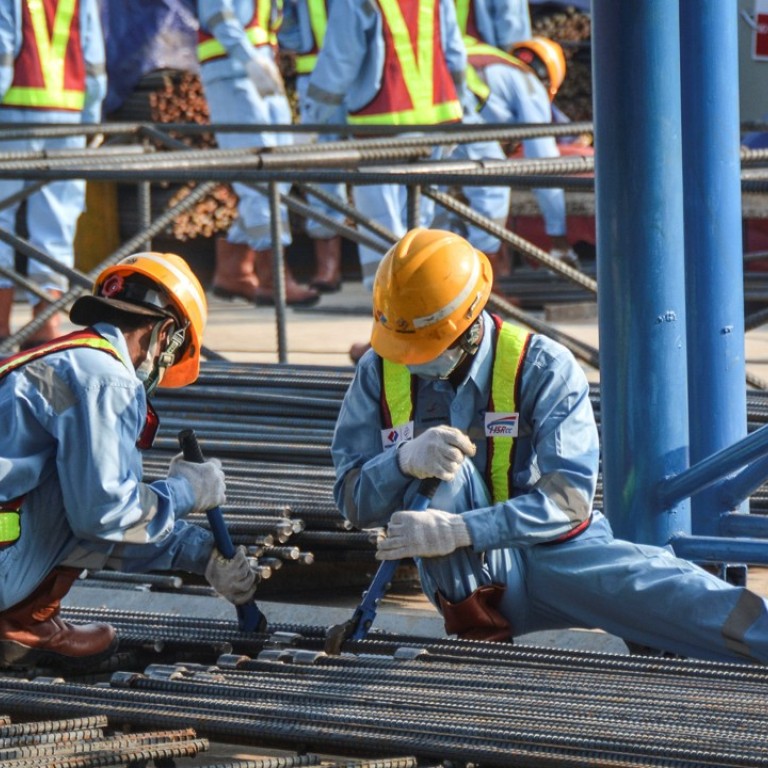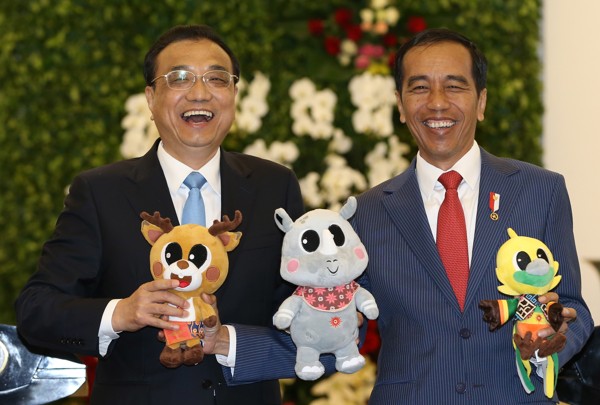
Indonesia looks to China as it tries to deal with trade pressure from US
As delegation goes to Washington for talks, Indonesian official says Jakarta and Beijing are ‘setting a constructive example in the face of protectionism’
China and Indonesia are forging closer economic ties as the two countries face threats to their trade relations with the US, a trade official from the Southeast Asian nation said.
Indonesia has joined the list of countries forced to respond as the United States ratchets up pressure on trade, and Jakarta has sent a delegation to Washington as the US seeks to reduce its deficit with trading partners around the world – triggering a backlash from allies.
“US protectionism is really affecting lots of places – China, the EU, and now Indonesia,” said Dandy Iswara, trade attaché at the Indonesian embassy in Beijing.
“China and Indonesia are both facing a common problem in the US, and at the same time China and Indonesia are setting a constructive example in the face of protectionism by increasing international trade.”
Can Indonesia balance globalisation with economic populism?
In April, Indonesia and China signed five contracts worth US$23.3 billion for infrastructure projects, including a hydropower plant and a facility to convert coal into dimethyl ether – an organic compound that can be used as an alternative fuel. Two-way trade between the nations hit US$63.4 billion last year, up by 17 per cent from 2016.
Chinese businesses also signed a purchase agreement with Indonesia for US$726 million of palm oil and its derivatives in July.
“The Chinese market is opening up, and access to markets is increasing – this is a good sign,” Iswara said of the deals.
Visiting Hong Kong last month, Indonesian ambassador to China Djauhari Oratmangun said the country was looking to export more products to China.
“We go line by line through all the products, and we realise that some products could be increased, especially those that are not produced in China,” he said.

Both China and Indonesia are looking for ways to deal with trade actions taken by US President Donald Trump. The White House, which says China’s trade practices are unfair, has already imposed tariffs on US$34 billion worth of Chinese imports. Trump said on Friday that he was willing to impose duties on all Chinese imports – which are worth about US$500 billion – if necessary.
Indonesia is also trying to tackle the threats to its trade relationship with the US. Trade minister Enggartiasto Lukita is leading a delegation on a week-long visit to the US from Saturday to defend the generalised system of preference (GSP) – a programme that helps developing nations’ growth through lower tariffs.
The Trump administration said in April it would review Indonesia’s status under the programme for implementing “a wide array of trade and investment barriers that create serious negative effects on US commerce, and for concerns about market access for US firms among other concerns”.
The current GSP agreement covers a number of the largest traded goods between the United States and Indonesia, like garments, which are Indonesia’s biggest export to the US market.
India and Pakistan will also have their eligibility for the GSP scheme reviewed, according to the April announcement.
US official: trade war with China is not personal, it is just business
The US had a US$13.3 billion goods trade deficit with Indonesia in 2017, according to the United States Trade Representative.
Indonesia and China were both named among 12 countries on the USTR’s “priority watch list” in its US Special 301 report on intellectual property in April due to their lack of patent law enforcement, and the US also demanded more market access in both countries.
“We want the US side to see that, while we are still developing, some of these products are commodities that complement the US market – for example, garments. We are not a threat to the US,” Iswara said.
Japan to help develop Indonesian islands in South China Sea
By changing the GSP with Indonesia, Washington risked hurting US industries that rely on products like rubber – one of its top imports to the US – which are important for American car and tyre manufacturers, Iswara said.
“We are seeing how we can engage more with the US, and make clear our opportunities to collaborate more,” he said.
Iswara added that he hoped for a return to talks that could bring an end to the uncertainty over trade, as well as lasting, beneficial agreements. “Even though there are both positive and negative effects, this situation needs to be resolved,” he said.

